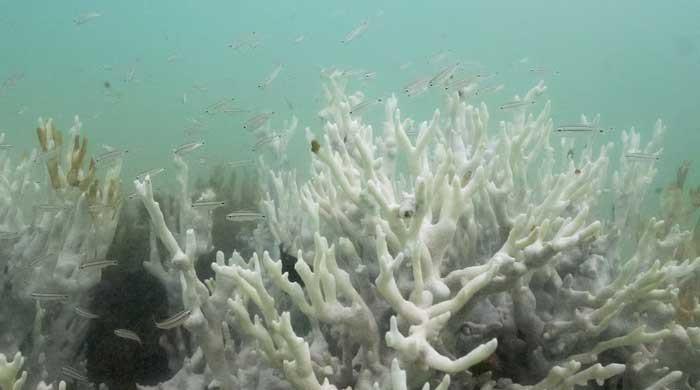Global warming is crossing dangerous thresholds sooner than expected, with the world’s coral reefs now facing almost irreversible disappearance, marking what scientists described Monday as the first “tipping point” in climate-driven ecosystem collapse.
The warning in the Global Tipping Points report by 160 researchers from around the world, which synthesizes groundbreaking science to estimate tipping points, comes just weeks before this year’s COP30 climate summit, which will be held on the edge of Brazil’s Amazon rainforest.
This same rainforest system is now at risk of collapse once the global average temperature warms beyond just 1.5 degrees Celsius based on deforestation rates, the report said, revising downward the estimated threshold for the Amazon.
If temperatures continue to rise, there is also concern about the threat of a disruption of the major ocean current called the Atlantic Southern Overturning Circulation, or AMOC, which helps ensure mild winters in northern Europe.
“Change is happening rapidly and tragically in parts of the climate, of the biosphere,” said environmental scientist Tim Lenton of the University of Exeter, who is the lead author of the report.
Some positive signs
Lenton noted positive signs when it comes to phasing out the fossil fuels most responsible for climate change. Renewable energy, for example, accounted for more electricity generation than coal for the first time this year, according to data from the nonprofit think tank Ember.
“No one wants to just be traumatized and helpless,” Lenton said. “We still have some agency.”

Scientists implored countries at COP30 in November to work to reduce carbon emissions responsible for global warming.
Scientists have been surprised by how quickly changes are occurring in nature, with global average temperatures already having warmed by 1.3 to 1.4 degrees Celsius (2.3 to 2.5 degrees Fahrenheit) above the pre-industrial average, according to data from UN and EU science agencies.
Hottest ever recorded
The past two years have been the hottest on Earth’s record, with marine heatwaves straining 84 percent of the planet’s reefs to the point of bleaching and, in some cases, killing them. Coral reefs are home to about a quarter of marine life.
For corals to recover, the world would need to significantly step up its climate action to bring temperatures down to just 1 degree Celsius above the pre-industrial average, scientists suggest.
“The new report clearly shows that each year the scope and scale of the negative impacts of climate change increases,” said Pep Canadell, senior scientist at Australia’s CSIRO Climate Science Centre.
The world is currently on track to achieve warming of around 3.1 degrees Celsius this century, based on national policies.




